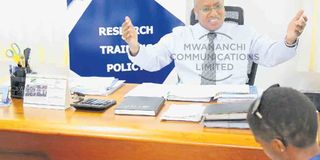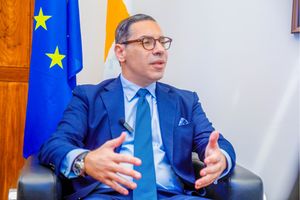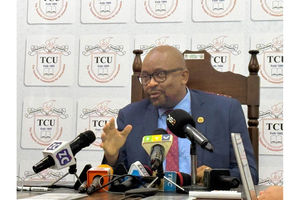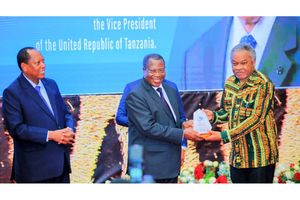Govt called on to reconsider funding research institutions

The Repoa executive director, Dr Donald Mmari, speaks to The Citizen reporter during an exclusive interview in Dar es Salaam recently. PHOTO | ANTHONY SIAME.
What you need to know:
Without adequate research funds there will be also no serious research conducted and this leads to limited research findings and outcomes
Dar es Salaam. The government has been urged to reconsider financing research organisations and institutions if at all the focus is to become a middle income economy by 2025.
Speaking during an exclusive interview with The Citizen recently, the executive director of Policy Research for Development (Repoa), Dr Donald Mmari, said sustainable development lied in adequate investment in research because it brought about anticipated results. He explained that to become an industrial nation adequate investment in natural resources, industrialisation and implementation were necessary.
On natural resources, Dr Mmari said it included studies in land and agricultural productivity and how better it could bring about socio-economic development. “Other areas in the land category are mines and mining activities, natural gas, forests and tourism. All these accelerate economic growth,” he explained.
The second area of industrialisation, according to Dr Mmari, are Small and medium-sized Enterprises and labour market dynamics, which translate into engaging more people in building the economy.
He added that there should be enough research that would lead to long-term solutions to unemployment, which had been a setback to economic growth. Lastly, he noted, research could be used to promote good governance in the utilisation of resources and their allocation.
He said research would be used in policy and law making as well as strategic planning for different projects.
Dr Mmari explained that the major challenge faced by different research institutions in Tanzania and other developing countries was inadequate finances needed for paying researchers and resources needed for researchers.
“Due to these shortcomings the government ought to collaborate with the private sector to finance this sector without relying on donors, who didn’t guarantee constant help or the sustainability of institutions,” he elaborated.
Currently Repoa was ranked the top think-tank in Tanzania in a global survey called the ‘Global Go to Think Index’ to rate top research institutions across the world.
For three years in a row Repoa has maintained its position against other research organisations in the country, while coming third place in East Africa and 13th in Africa.
The survey was conducted last year by the University of Pennsylvania within 149 countries worldwide with 94 institutions competing from sub-Saharan Africa.
Other institutions from Tanzania that participated in the survey include Uongozi Institute, the Economic and Social Research Foundation and the Tanzania Natural Resources Forum. The director of strategic research at Repoa, Dr Abel Kiyondo, recently said countries that ranked best than them in the survey were well-funded by their governments and thus increased their efficiency in carrying out their activities.
Reports show that the Kenya Institute for Public Policy Research and Analysis (KIPPRA), which got ranked the first in East Africa on the awards, gets 60 per cent of its finances from the Kenyan government.
According to the National Bureau of Statistics, Tanzania’s agricultural sector grew at a rate of 3.2 per cent in the second quarter last year, reaching Sh3.8 trillion compared to Sh2.5 trillion in the similar period in 2015.
It also says agriculture is Tanzania’s economy mainstay, as it contributes nearly 30 per cent to its GDP and 67 per cent to total employment.
In a country like Tanzania, where each year, 900,000 young Tanzanians enter the job market, which is generating only 50,000-60,000 new jobs thorough research should be done to come up with strategies to increase youth self-employability.




